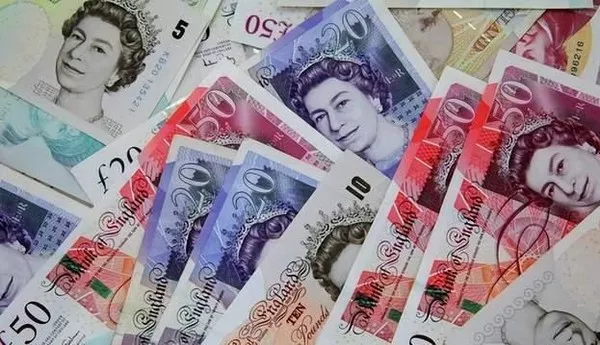The British Pound (GBP) has been experiencing a notable decline in value in recent times, prompting many to question the factors driving this depreciation. In this comprehensive analysis, we delve into various economic, political, and global dynamics that contribute to the weakening of the GBP.
Introduction: The Recent Decline in GBP Value
In recent months, the GBP has witnessed a downward trajectory in its value against other major currencies. This decline has raised concerns among investors, businesses, and policymakers alike, as it impacts various aspects of the economy, from trade to inflation.
Historical Context: A Brief Overview of GBP Performance
The GBP has a storied history of fluctuations in value, influenced by a multitude of factors including economic conditions, political events, and global market dynamics. While it has experienced periods of strength, it has also faced significant downturns, reflecting the inherent volatility in currency markets.
Economic Policies and GBP Impact
Government policies play a crucial role in shaping the value of the GBP. Measures such as tax cuts, fiscal stimulus packages, and austerity measures can have significant implications for currency strength or weakness. For instance, expansionary fiscal policies may initially boost the currency, but prolonged deficits can lead to depreciation due to concerns over sustainability.
Global Market Dynamics and GBP
Global events and market trends exert considerable influence on the GBP’s value. Factors such as geopolitical tensions, economic growth prospects, and shifts in investor sentiment can trigger fluctuations in currency markets. For example, uncertainties surrounding Brexit negotiations and trade tensions with major trading partners have weighed on the GBP in recent years.
Interest Rates and Inflation: The Role of the Bank of England
The Bank of England’s (BoE) monetary policy decisions, particularly regarding interest rates and inflation targets, have a direct impact on the GBP. Changes in interest rates affect borrowing costs, investment decisions, and inflation expectations, all of which influence currency values. Inflation rates also play a critical role in shaping market perceptions of a currency’s purchasing power and future value.
Political Factors and GBP Stability
Political stability and decisions can significantly affect currency markets. Political turmoil, leadership changes, and policy uncertainty can undermine investor confidence and lead to capital outflows, weakening the GBP. Conversely, clear and stable governance can bolster investor trust and support currency strength.
Trade and Investment Flows: Implications for GBP
Trade dynamics and investment flows play a crucial role in determining the value of the GBP. Trade deficits or surpluses can impact currency demand and supply, while foreign investment inflows/outflows influence exchange rates. Shifts in global trade patterns, such as changes in trade agreements or tariffs, can affect the GBP’s competitiveness and value.
Comparison with Other Currencies: GBP Performance Analysis
Comparing the GBP’s performance with other major currencies, especially the US Dollar (USD), provides valuable insights into its relative strength or weakness. While currency movements are influenced by a myriad of factors, assessing how the GBP fares against its peers helps contextualize its performance within the broader currency market.
Expert Opinions and Insights
Economists and market analysts offer valuable perspectives on the factors driving GBP fluctuations and their potential implications. Their insights into economic trends, policy developments, and market sentiment provide valuable guidance for investors and policymakers navigating currency markets.
Future Outlook: Predictions and Expectations for GBP
Looking ahead, the outlook for the GBP remains uncertain amidst ongoing economic challenges, geopolitical risks, and policy uncertainties. While certain factors may support currency appreciation in the short term, structural issues and external pressures could continue to weigh on its long-term prospects.
See Also Why is the Pound So Weak?
In conclusion
The decline of the British Pound (GBP) is a multifaceted phenomenon influenced by a complex interplay of economic, political, and global factors. Understanding these dynamics is essential for stakeholders seeking to navigate currency markets and anticipate future developments in the GBP’s value.


